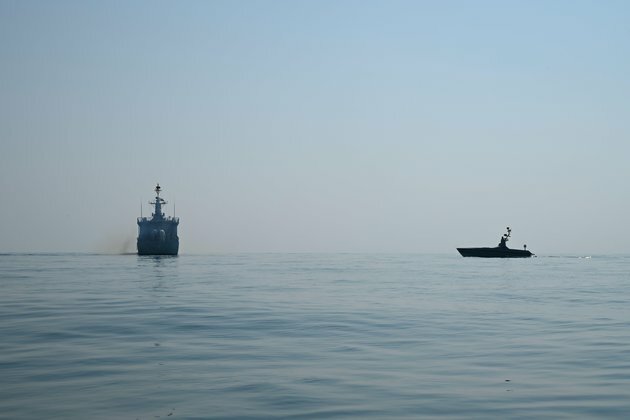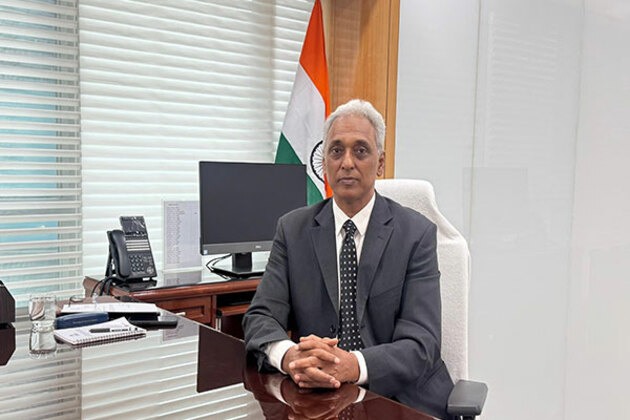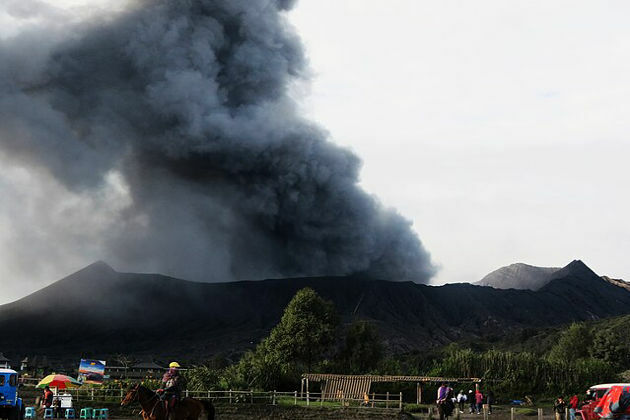Ukraine: how uncrewed boats are changing the way wars are fought at sea
The Conversation
21 Mar 2023, 16:08 GMT+10

When Ukraine successfully deployed self-driving "drone" boats for a major attack on the Russian navy at Sevastopol in Crimea in September 2022 it was a defining moment that changed the future of naval warfare. Uncrewed surface vessels (USVs) have been used before, but this was the first instance of multiple, armed USVs, used simultaneously in combination with aerial drones for a successful, offensive naval operation on a military target.
Several Russian ships were damaged in the attack, and the USVs were reportedly able to penetrate the harbour defences and cause damage to ships in protected anchorages. This will cause a rethink of the role of uncrewed vessels for offensive naval ops, and of harbour defences to protect against such attacks.
USVs offer a number of advantages over regular manned vessels which make them attractive to navies - and many countries have been developing or experimenting with them in recent years. The US has invested heavily with a strategic plan to acquire medium, large and extra-large "unmanned vehicles" to operate both on the surface and underwater. By 2052, more than half of the US naval fleet could potentially be uncrewed.
Other navies are reluctant to be left behind and are actively developing their uncrewed and autonomous capabilities. These include China, UK, South Korea, Japan, Singapore, Australia, and others.
By removing human crews from naval vessels a number of efficiencies can be achieved. The design of the ship can be streamlined, disregarding human needs such as sleeping, eating and safety (sleeping berths, galleys, life-rafts and life-jackets can all be removed). So they can be smaller, cheaper to run, faster and able to remain at sea for longer periods of time, in harsher conditions, without any risk of injury or human error.
If armed, they are able to strike targets at the push of a button. And if armed with artificial intelligence (AI) enabled weapons, they are able to identify, acquire and engage targets without any human oversight - and at much greater speeds. Vice-admiral Roy Kitchener, the commander of US naval surface forces, commented in December 2022 that USVs would be a "catalyst for innovation" in the US Pacific fleet, adding that: "The implementation of unmanned systems will increase decision speed and lethality to enhance our warfighting advantage."
Ethical and legal questions
But the use of these uncrewed warships raises a number of important legal and ethical questions. Under the United Nations Convention on the Law of the Sea (UNCLOS) - often referred to as the "Constitution of the Oceans" - a "warship" is legally defined as being "under the command of an officer" and "manned by a crew which is under regular armed forces discipline" (emphasis added).
As the "Articles to the Law of the Sea with Commentaries" from 1956 explains, "the definition of the term 'warship' has been based on articles 3 and 4 of The Hague Convention of 18 October 1907 relating to the conversion of merchant ships into warships". The purpose of Article 29 was not to ensure the presence of human crews on warships. That was assumed. It was actually directed at ensuring crews of naval vessels were subject to state oversight and military discipline in response to the practice of privateering which had been employed by some states.
At present there is no settled legal position on the status of uncrewed vessels as "warships". So how different states use them will be instrumental in forming a more solid position in international law.
Arguably, an expansive, evolutionary approach to interpreting the convention in light of modern advancements, and the purpose of Article 29, could allow an uncrewed vessel to be regarded as a "warship" to ensure a state's accountability for its actions. This is precisely the view taken by the UK Ministry of Defence in a submission to the House of Lords in November 2021. On the question of whether UNCLOS is "fit for purpose" in the 21st century, it said that Article 29 confirms that:
The House of Lords, in its report on UNCLOS: the law of the sea in the 21st century, noted the "absence of international regulation" on the question of "whether maritime autonomous vehicles can be classified as warships or not" and the need to "work with like-minded partners to regulate these technologies". Effectively leaving the question open until further international practice, opinion and consensus builds up.
The rapidly evolving technology means that the pace of naval conflict will continue to increase. Swarms of networked drones, equipped with AI will give significant speed and lethal advantages to those forces that use them. This will make human "in-the-loop" decision-making increasingly redundant - and even disadvantageous in future conflicts.
But there are significant cyber-security concerns and questions about the reliability and timeliness of human oversight of autonomous systems operating hundreds of nautical miles - possibly underwater - away from human oversight or control. Further, the UK's commitment to the ethical and legal use of autonomous systems does in no way guarantee that rivals, enemies, or even allies, will show the same restraint - especially in times of war.
The international debate over lethal autonomous weapons systems (LAWS) and calls for a convention to ban them are relevant in this context. An issue of this importance needs to be subject to a public debate and parliament, as a representative of the people, needs to determine their legality and use.
Author: Adam James Fenton - Associate Professor (Research), Coventry University 
 Share
Share
 Tweet
Tweet
 Share
Share
 Flip
Flip
 Email
Email
Watch latest videos
Subscribe and Follow
Get a daily dose of Bristol Star news through our daily email, its complimentary and keeps you fully up to date with world and business news as well.
News RELEASES
Publish news of your business, community or sports group, personnel appointments, major event and more by submitting a news release to Bristol Star.
More InformationUnited Kingdom
SectionStarmer: US-UK trade deal to be finalized 'very soon.'
KANANASKIS, Alberta: With key tariff deadlines approaching, British Prime Minister Keir Starmer said this week that finalizing the...
Blaise Metreweli becomes first woman to head MI6
LONDON, U.K.: On June 15, Britain named Blaise Metreweli as the first woman to lead the Secret Intelligence Service, commonly known...
Flight recorder may reveal cause of deadly crash of Air India Boeing
NEW DELHI, India: The flight data recorder from the crashed Air India plane was found on June 13. This vital discovery may help investigators...
"New Uttar Pradesh making identity as express-way state": CM Yogi inaugurates Gorakhpur Link Expressway
Azamgarh (Uttar Pradesh) [India], June 20 (ANI): Uttar Pradesh Chief Minister Yogi Adityanth on Friday said that the new Uttar Pradesh...
Sivasubramanian Ramann assumes charge as the new Chairperson of PFRDA
New Delhi [India], June 20 (ANI): Sivasubramanian Ramann assumed charge as the Chairperson of the Pension Fund Regulatory and Development...
Indian Author and Human Rights Advocate Rajesh Talwar Honoured with the University of Nottingham Alumni Award
HT Syndication New Delhi [India], June 20: Renowned multi-genre Indian author has been recently honoured with the University of Nottingham...
International
SectionVolcanic ash grounds flights to Indonesia, disrupts travel to Bali
LEMBATA, Indonesia: Indonesia's Mount Lewotobi Laki Laki erupted dramatically on June 18, generating substantial ash and smoke plumes....
REE misjudgment caused April blackout, says Spain's energy chief
MADRID, Spain: A routine oversight by Spain's power grid operator, REE, has been identified as the trigger behind the large-scale blackout...
Trump gives himself a fortnight to decide on joining Netanyahu's war
WASHINGTON, DC - In a bid to defuse speculation, U.S. President Donald Trump says he will make his decision on whether to have the...
U.S. abandons inter-agency effort to pressure Moscow on Ukraine
WASHINGTON, D.C.: A quiet shift inside the Trump administration has stalled a key diplomatic initiative aimed at pushing Russia toward...
Investigators examining Black Boxes recovered from Air India Boeing
NEW DELHI, India: Indian investigators are examining the black boxes from a Boeing 787 Dreamliner to determine the cause of a catastrophic...
New banquet rules in China after deaths, part of Xi’s crackdown
BEIJING, China: Chinese civil servants are now facing stricter rules on dining together, with some local authorities limiting group...













